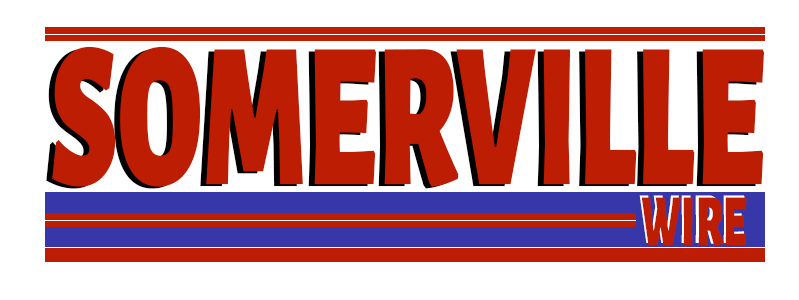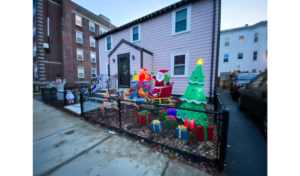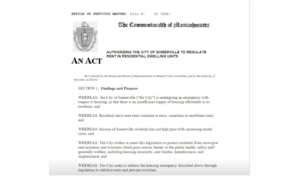How immigrants face the imbalance in the world of technology
(Somerville Wire) – The digital divide in Somerville, which was laid bare over the course of the pandemic, represents an issue of equity in the city, particularly as it relates to immigrants and other marginalized groups, say City officials.
At a March 15 Equity, Gender, Seniors, Families, and Vulnerable Populations Committee meeting, Director of the Department of Racial and Social Justice Denise Molina Capers said that there has been intentional outreach from the City in multiple ways, but that 81% of Americans have smartphones with no guaranteed internet. 75% of Americans have access to broadband internet but do not necessarily have reliable service. One in four people do not have reliable access to the internet. Councilor Beatriz Gomez-Mouakad described the problems in digital equity that immigrants faced, challenges that became more pronounced through pandemic times.
“The problems I saw during the pandemic—there were two things. The first thing is that things in the beginning were not translated at all. Then what’s happening is, as things have been translated, there has not been a quality assurance process. A lot of people are using a smart phone and not a computer. The other thing is that when we talk about the digital divide, how do people communicate?”
“The digital divide is not just about the digital piece,” Gomez-Mouakad continued, “it’s how the information is formatted. Information is sent in these long, arduous emails that are hard to read, even for someone with a higher education, and they’re not formatted into simple language. The digital divide is complex. It’s about simple language; it’s about understanding what are the forms of communication.”
For example, she elaborated, many members of the group Padres Latinos communicate through WhatsApp and do not read emails as often. Not everyone has the same type of hardware, she said, and sometimes forms that are sent via email do not work when sent over a phone.
“At the onset of the pandemic, many younger people, especially those from lower income families, struggled with digital equity,” said Councilor Judy Pineda Neufeld. “When schools turned to remote learning, the disparities between those who had access to technology and those who did not was made very clear.
“When the pandemic started, there was data on the number of youth and students who didn’t have access to the internet at home. [There was] this herculean effort, not just to get hot spots to the hands of the families that needed to access the internet, to be able to have their kids participate in school, but also, there’s a whole other piece to this, not just about the hot spots,” said Pineda Neufeld. “It’s all the technical assistance that goes into helping someone set up the hot spot, managing any issues that come up. If you don’t already have access to internet at home, this is a whole new world. Many of the staff I worked with under the Immigrant Services unit during COVID, in the beginning, were spending a lot of time with families, just helping walk them through, providing that technical assistance—it was all hands on deck, to make sure that all of our youth had an opportunity to learn and continue remote learning outside of the classroom, when school shut down.”
Sonia Conde has been a Somerville resident for the past 10 years and is originally from Peru. She currently volunteers for Mutual Aid Medford and Somerville and Somerville Public Schools, and she is a coordinator at the Padres Latinos group. She is bilingual and can use the computer without difficulty, without facing barriers, but she said that for many immigrants who do not speak English fluently, reading a flier or email is not enough—they need in person assistance, making accessing information challenging. According to Conde, immigrants frequently “do not know what is out there. They don’t have access to the same information that white people or college educated people have. They don’t have resources. They don’t know that an organization is providing resources, like food.”
“Many families lost their jobs [during the pandemic], and they needed to look for jobs,” said Conde. “With the pandemic, you couldn’t go out and apply in person. You had to stay home and use a computer. If you don’t have a computer and internet, you have to get someone to help you.” She added, “If there’s not an advocate or someone, a community leader … it’s another barrier for the Latino community.”
Gomez-Mouakad said that digital equity is very much a racial and social justice issue, because individuals in immigrant communities are not able to reach their full potentials, when their access is limited.
“When you’re from a more vulnerable population, from a lower income [household], it’s really frustrating. It’s twice as frustrating when you can’t get access to something,” said Gomez-Mouakad. “You’re in a situation where you’re not included. You’re telling this person, you don’t belong. And that’s why it’s, in a way, very dangerous. One reason we want to be inclusive is, we want to tell people you belong here. You are part of the larger community, and we will address your needs.”
This article is syndicated by the Somerville Wire municipal news service of the Somerville News Garden project of the Boston Institute for Nonprofit Journalism.
All Somerville Wire articles may be republished by community news outlets free of charge with permission and by larger commercial news outlets for a fee. Republication requests and all other inquiries should be directed to somervillewire@binjonline.org. Somerville Wire articles are also syndicated by BINJ’s MassWire state news service at masswire.news.
SUBSCRIBE TO THE SOMERVILLE WIRE EMAIL NEWSLETTER: https://eepurl.com/hpBYPv
Check out all our social media here: https://linktr.ee/SomervilleWire.
Shira Laucharoen is assistant director of the Boston Institute for Nonprofit Journalism and assistant editor and staff reporter of the Somerville Wire.





